Yilan National Center for Traditional Arts: Immerse Yourself in Taiwanese Culture

Wujie Township, Yilan County
Sightseeing
The Yilan National Center for Traditional Arts, also known as the Center for Traditional Arts, is located on the Dongshan River in Wujie Township, Yilan County. It is a comprehensive park that combines traditional art performances, craft experiences, folk art education, and cultural and creative industries. Covering an area of approximately 24 hectares, it is not only an important base for preserving and promoting Taiwanese traditional arts but also plays a significant role in the field of Taiwanese culture. It is not only a place for cultural preservation but also a base for cultural innovation. Through various exhibitions, performances, and educational activities, the Center for Traditional Arts constantly integrates traditional culture into modern life, allowing more people to understand the importance of traditional culture and inspiring a love for it. It is also a great place for tourists to gain an in-depth understanding of the beauty of Taiwanese culture.
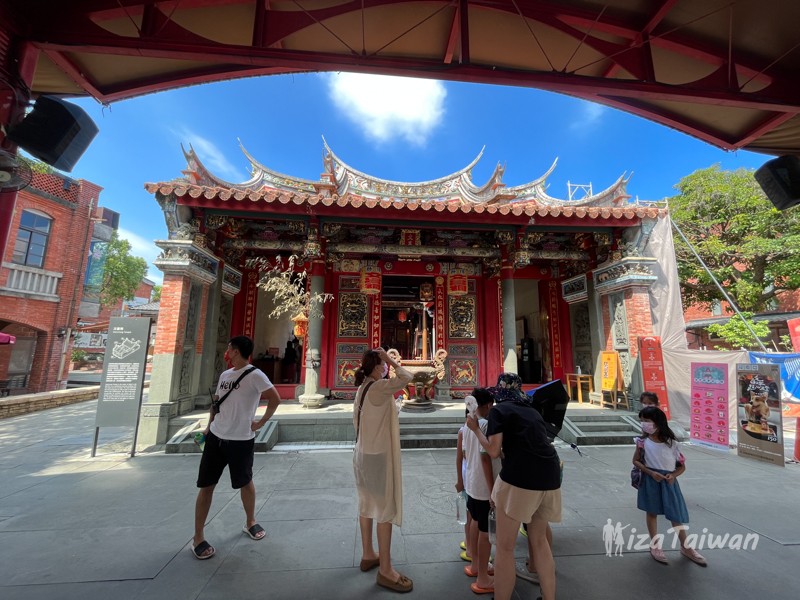
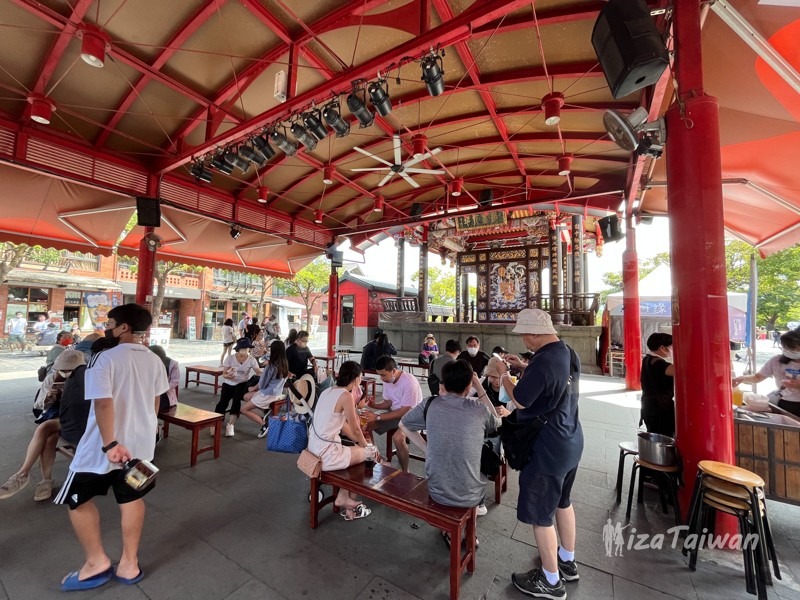
The government is paying increasing attention to Taiwanese traditional culture. To preserve and promote these precious cultural assets, the government began preparing for the construction of the Center for Traditional Arts in 1996 and officially opened it in 2003. The establishment of the Center for Traditional Arts not only provides a platform for traditional artists to perform and exchange ideas but also allows more people to have the opportunity to access and understand Taiwanese traditional culture.
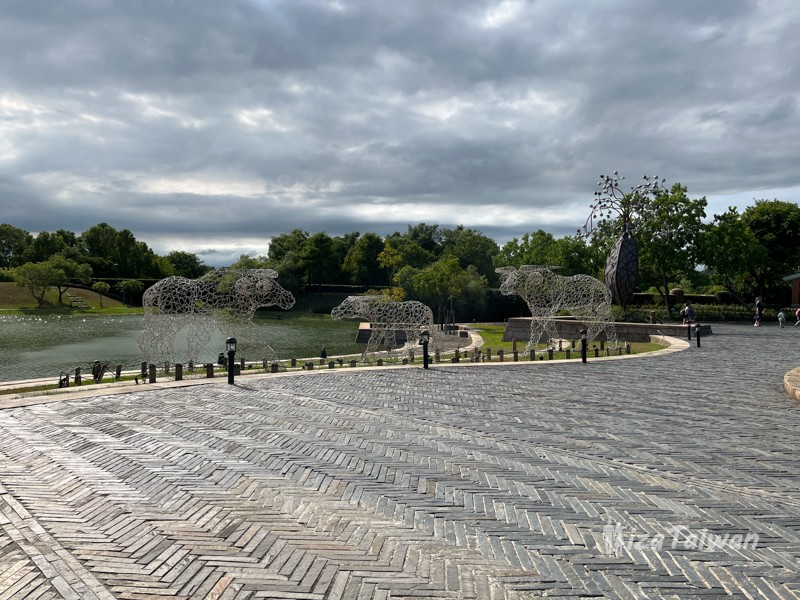
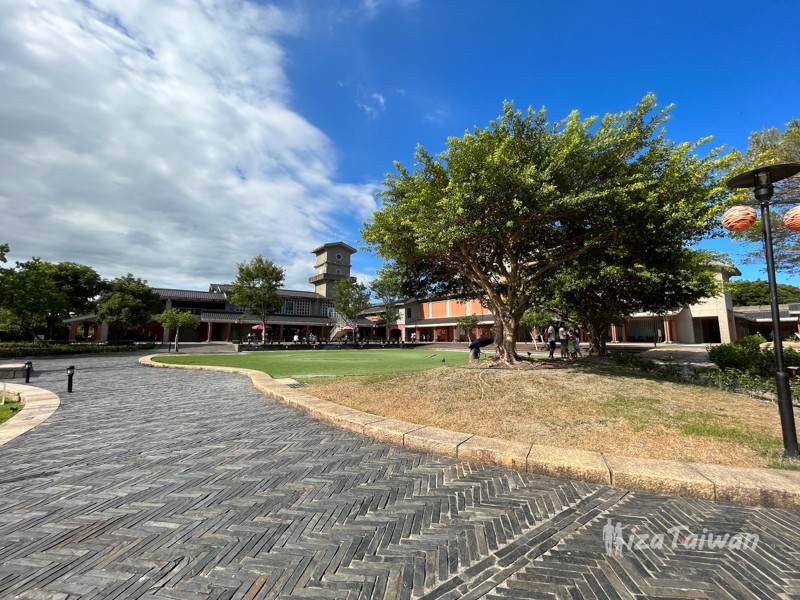
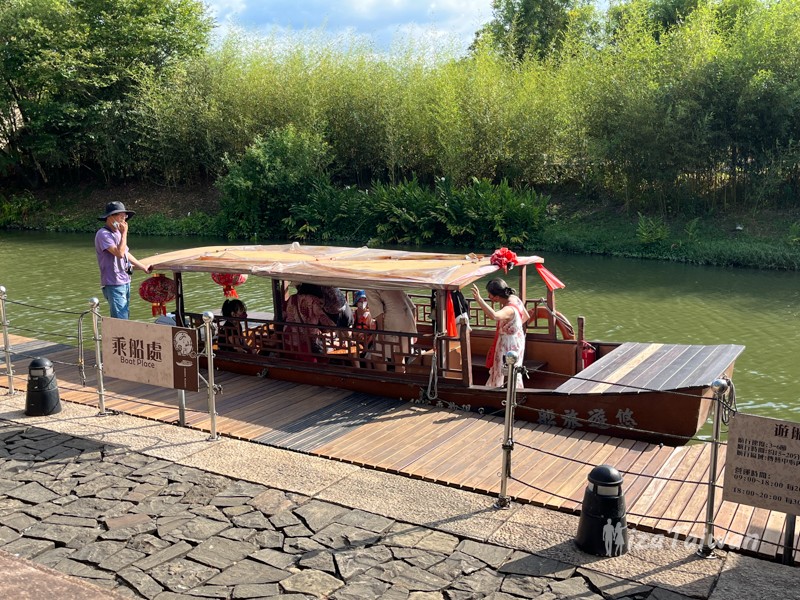
The park's features are presented in two main categories: "dynamic" and "static." The main attractions can be summarized as "three halls, three streets, and three buildings."
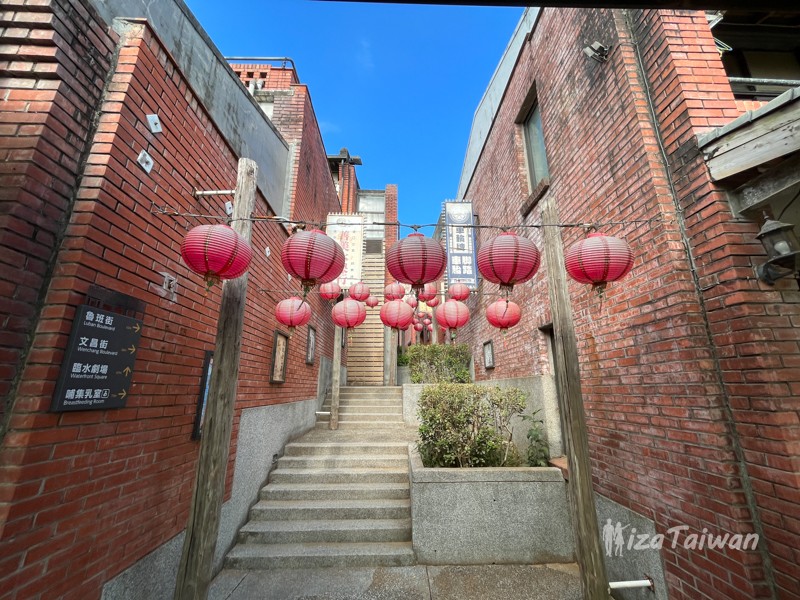
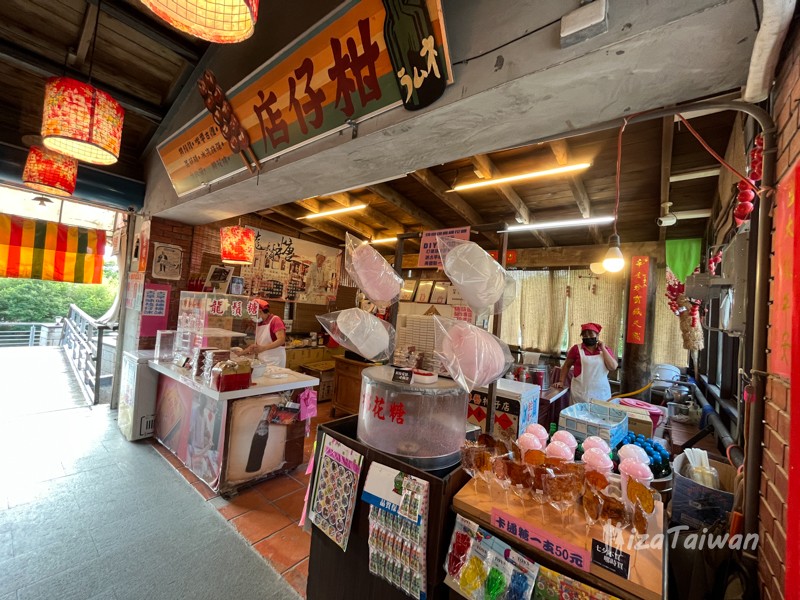
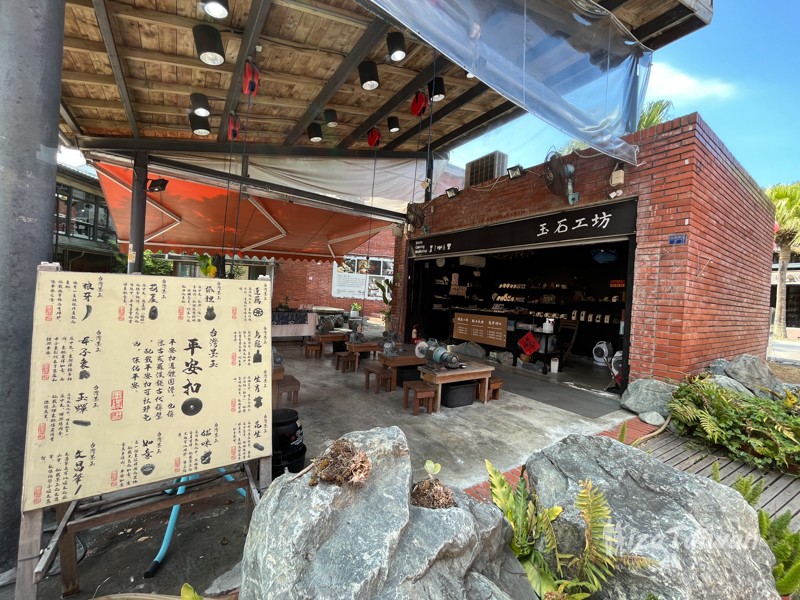
Three Streets: Experience traditional common life. These three streets are the most popular areas in the park, full of antique charm, and reproduce the style of early old streets in Taiwan. They are a concentration of craft exhibitions, art sales, and DIY handmade experiences.
Wenchang Street (or Folk Art Street): Modeled after the Minnan architectural style of old streets in Taiwan (such as Tamsui, Dihua, Jiufen, etc.), there are more than 30 featured stores on the street, selling glove puppets, traditional handicrafts, old-fashioned toys (such as spinning tops, maltose, dragon's beard candy), and offering craft DIY courses.
Linshui Street: Established along the waterfront, providing visitors with space to rest and enjoy the water scenery.
Luban Street: Gathering many craftspeople and featured cultural and creative shops.
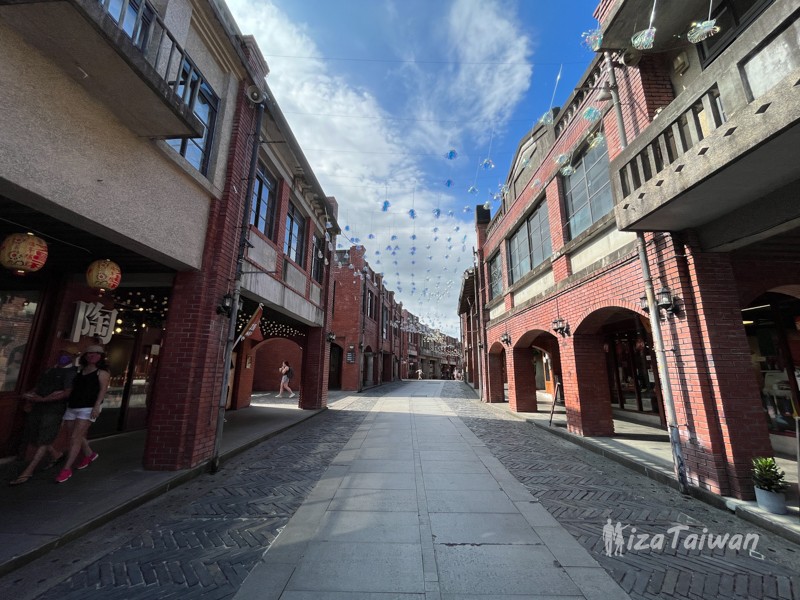
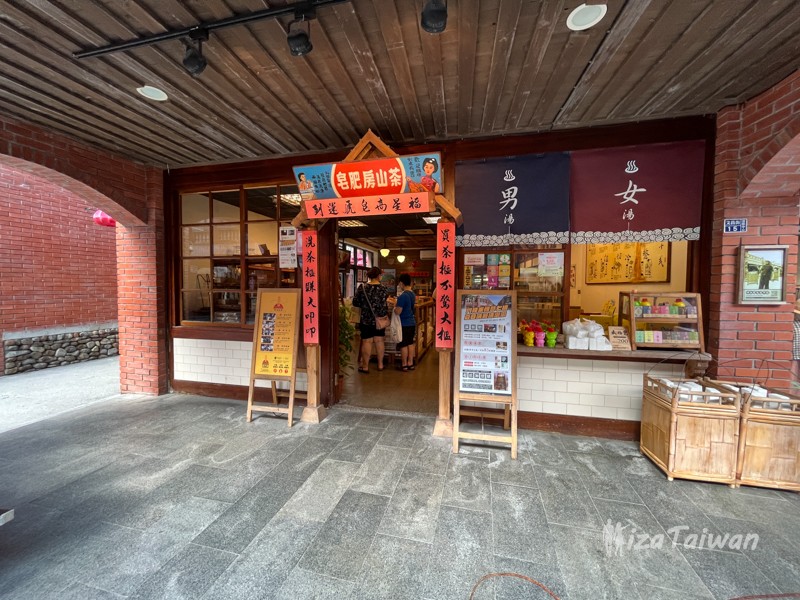
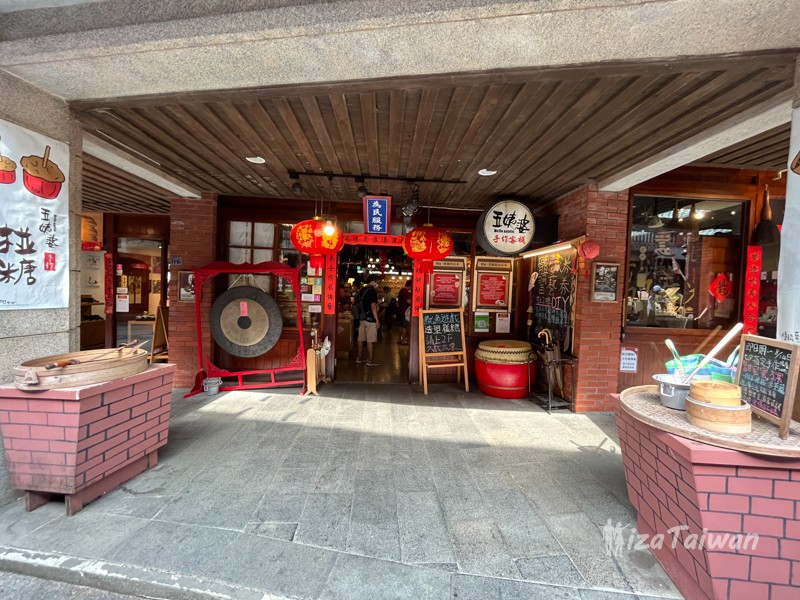
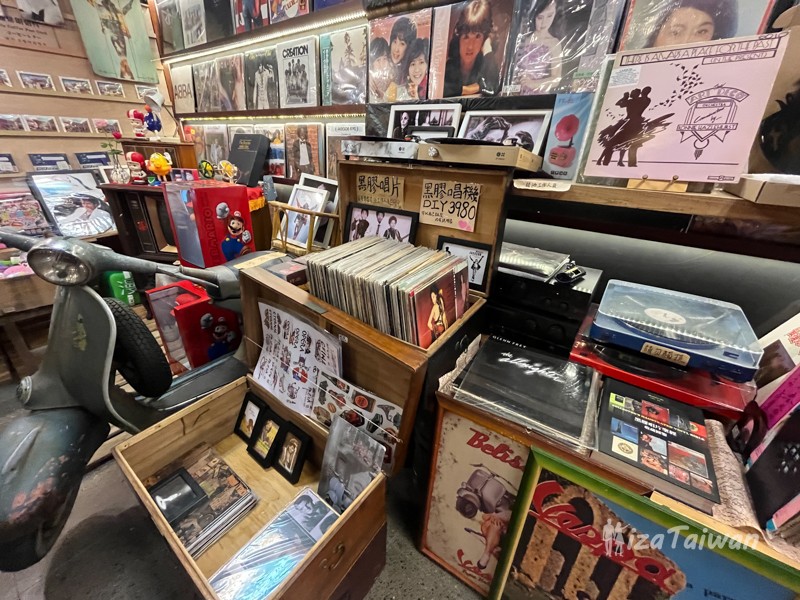
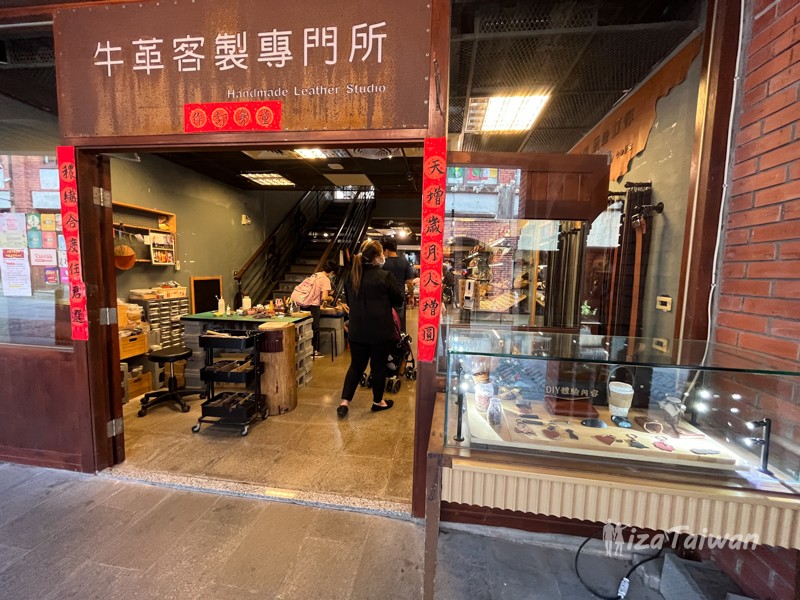
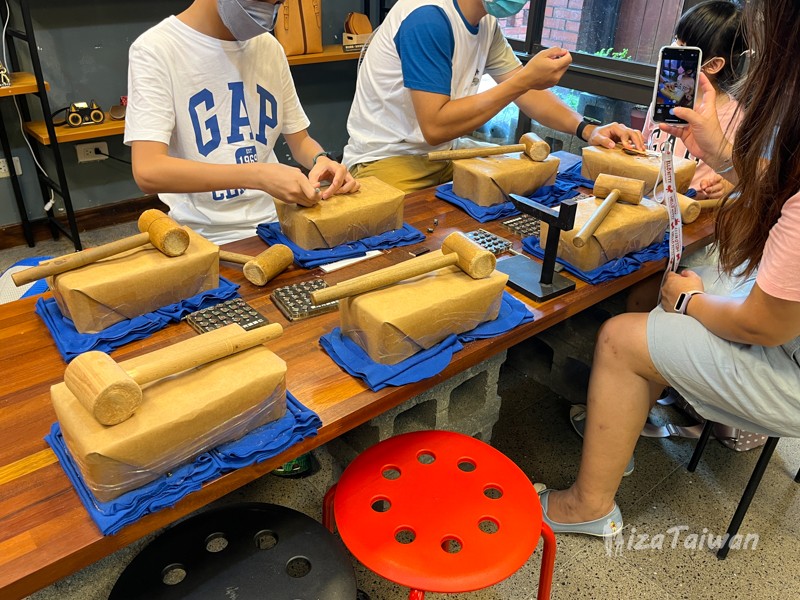
Three Buildings: History, humanity, and faith. These buildings represent Taiwan's traditional history, faith, and ancestral hall culture.
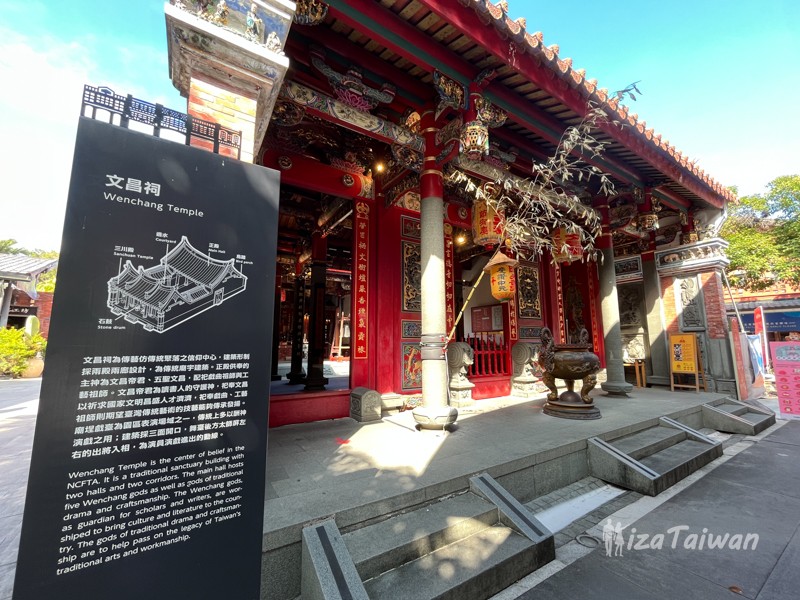
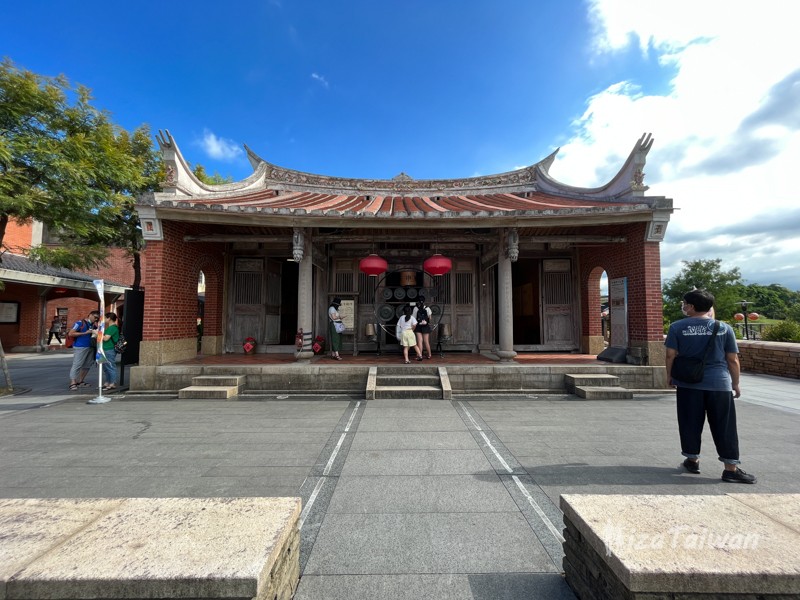
Wenchang Shrine: This is the center of faith in the park and the first official temple built by the government, mainly dedicated to Wenchang Dijun, praying for the prosperity of the country's civilization. Traditional opera performances are regularly held in the square in front of the shrine.
Huang Jujin's Residence: Originally the former residence of Huang Zuanxu, the first Juren (successful candidate in the imperial examination) in Yilan, it was relocated to the park for preservation due to urban planning and is representative of traditional residential architecture.
Guangxiao Hall: Originally the ancestral hall of the Zheng family in Yilan, it is also an ancient building that was relocated and preserved. There is a time-telling performance every two hours.
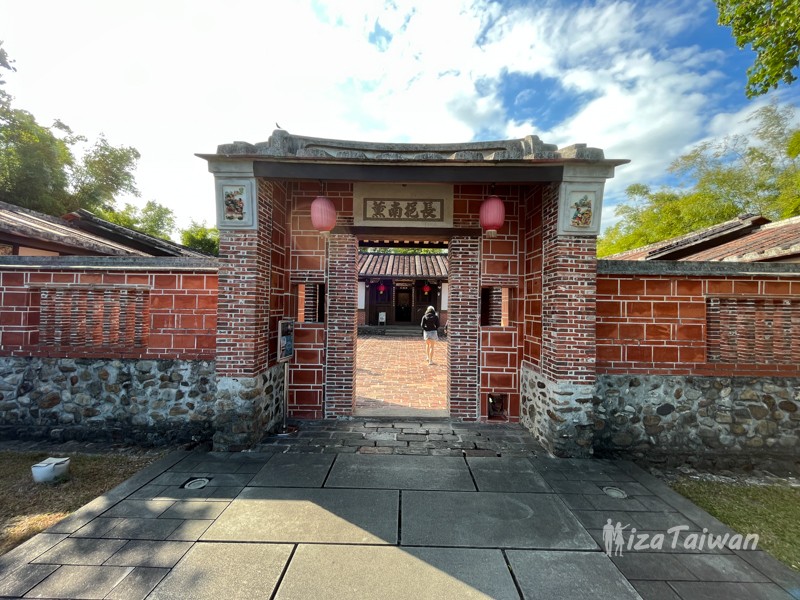
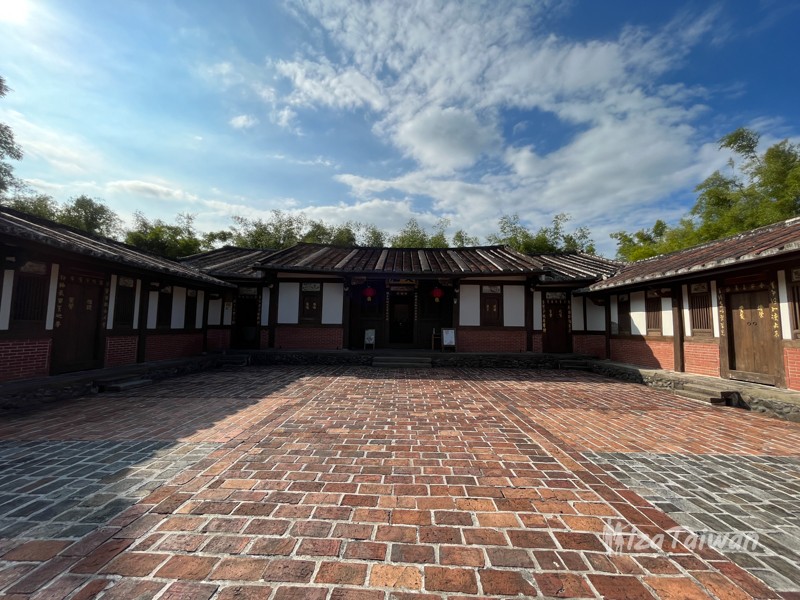
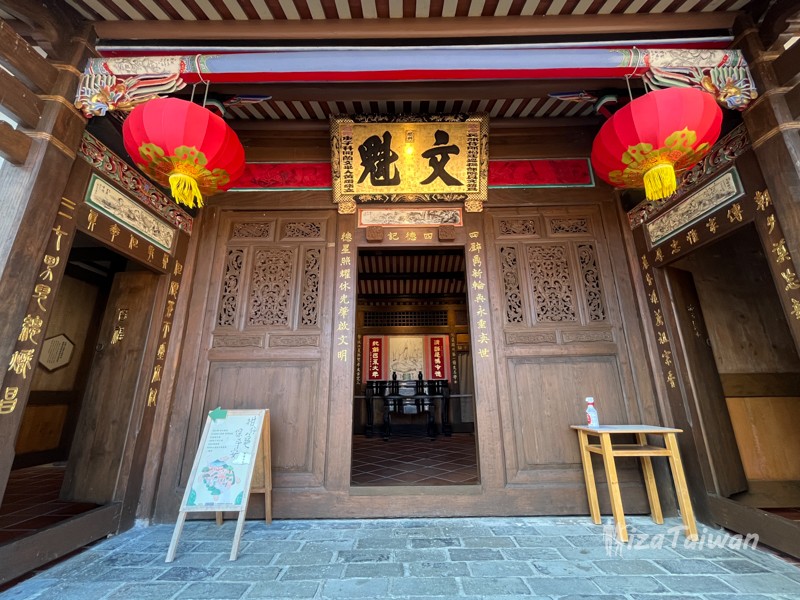
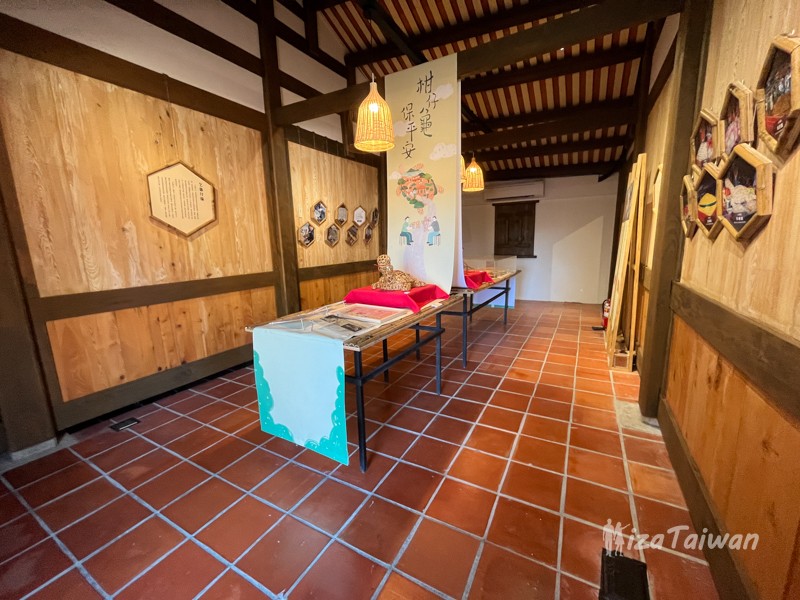
Three Halls: Static cultural relic exhibitions and performance spaces. These venues are mainly used for static exhibitions of traditional arts and professional performance venues.
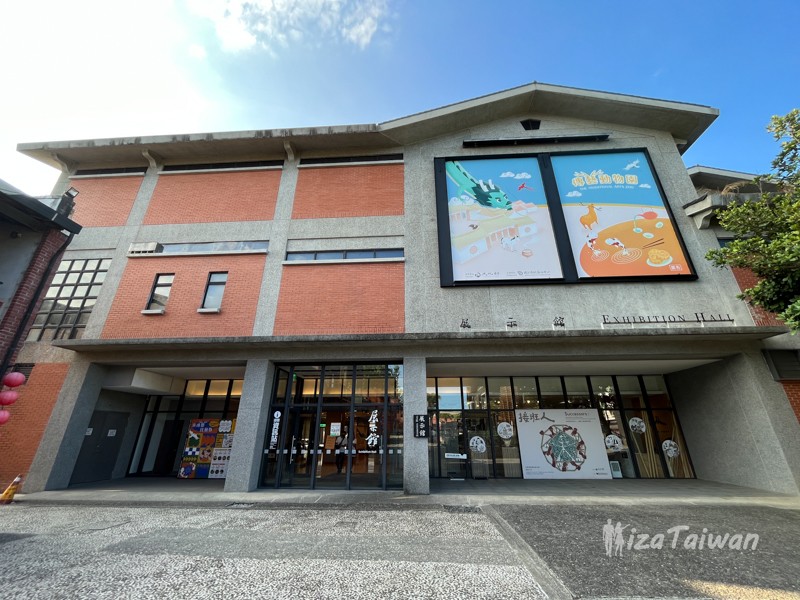
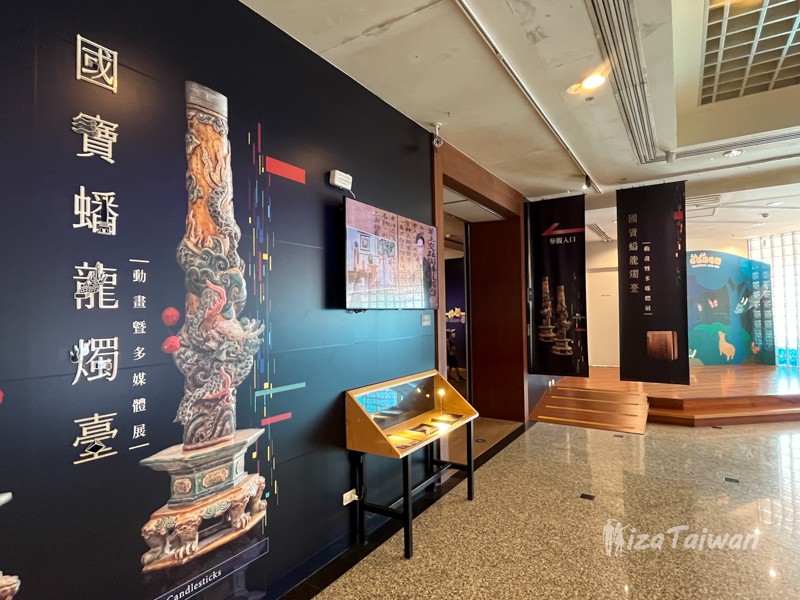
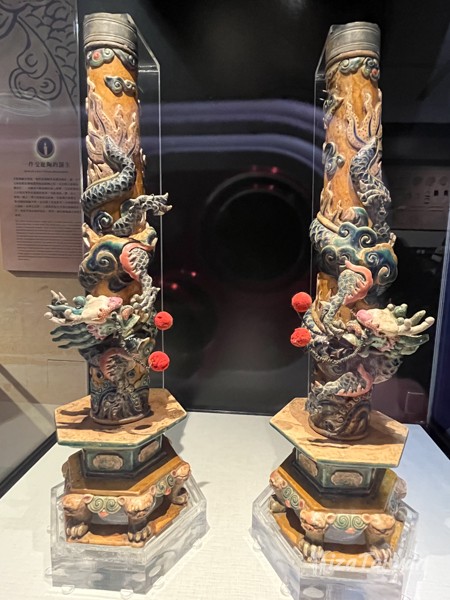
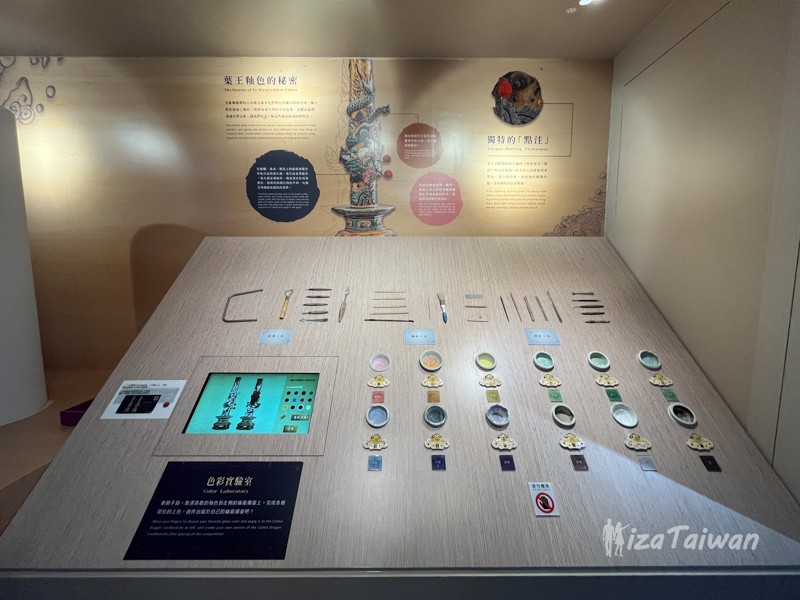
Exhibition Hall: The core function is to display the crafts and cultural relics of Taiwanese common culture.
Quyi Hall: A professional indoor performance space, often with traditional music, opera, and other performance programs.
Jiang Wei-shui Theater: The main semi-outdoor performance space in the park, inspired by the bamboo structure of the traditional "performance shed."
The greatest charm of the Center for Traditional Arts lies in its dynamism. Throughout the year, rich activities and performances are planned according to seasonal festivals.
Large-scale resident performances: The park uses the entire Folk Art Street as a stage to launch performances that integrate folk stunts, Taiwanese opera, and traditional opera music.
Street theater (such as the "Legend of Liao Tianding" series of stories): Actors will enthusiastically interact with tourists, creating an immersive viewing experience.
Craft inheritance: The park regularly holds craft exhibitions and provides various handmade experiences, allowing tourists to directly contact traditional crafts.
Timed performances: Traditional operas and cultural performances such as morning bells and evening drums are held regularly at Wenchang Shrine, Guangxiao Hall, and other locations.
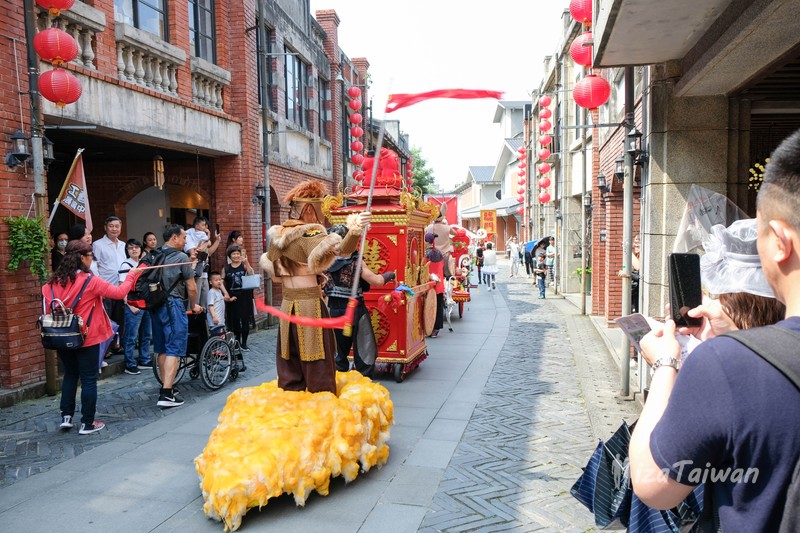
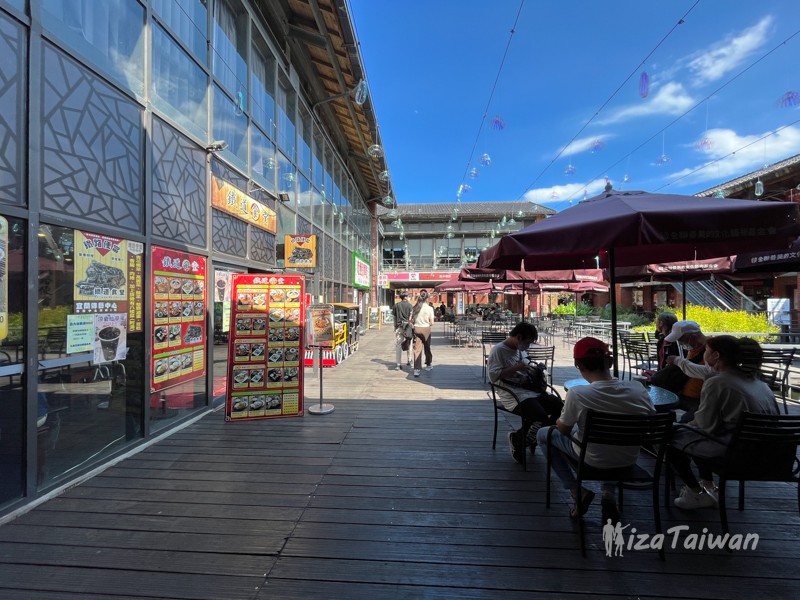
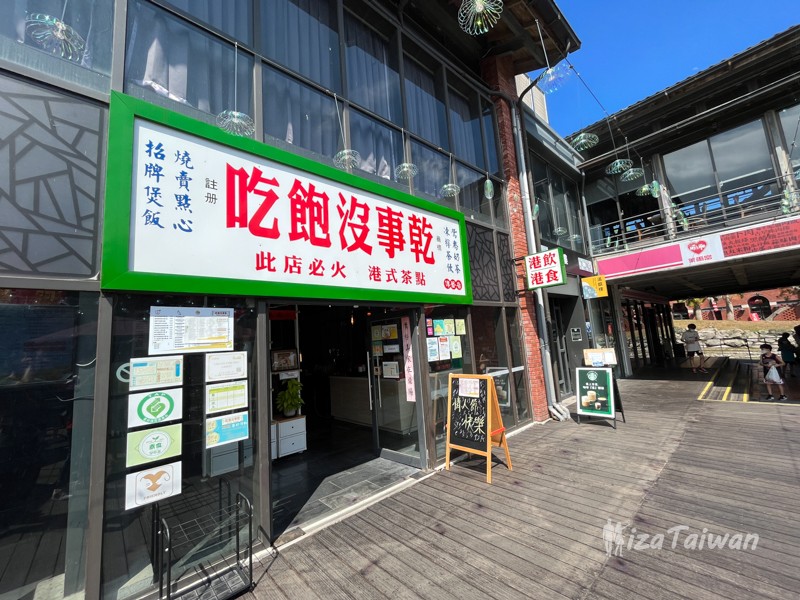
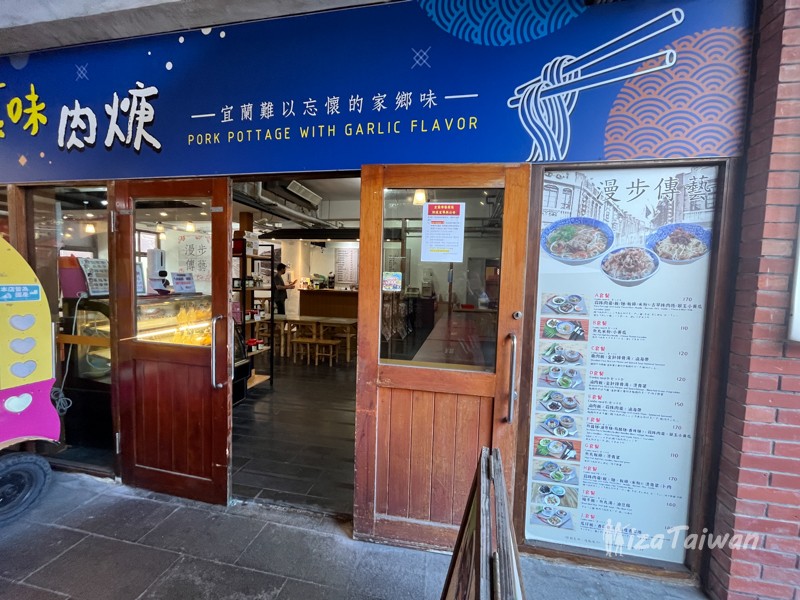
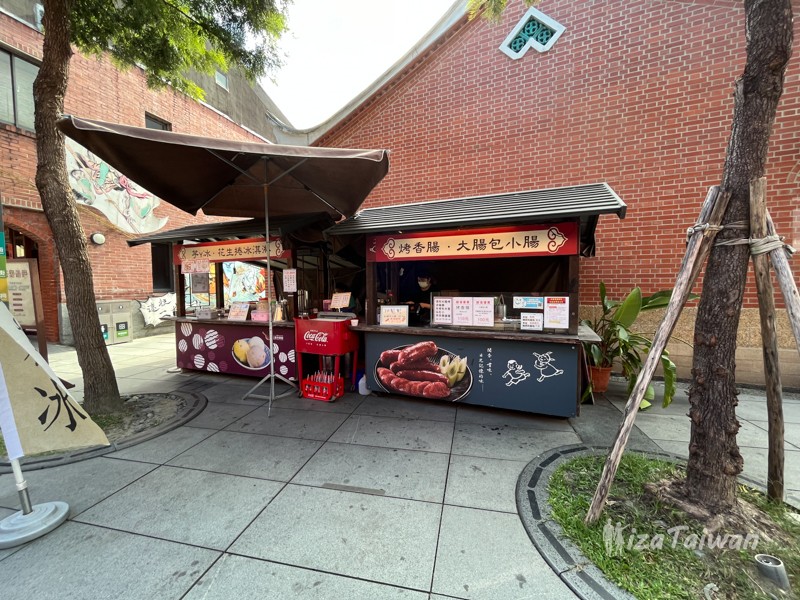
Nearby attractions/food/accommodations:
Houdongkeng Waterfall (Baishijiao Trail): A Secret Jiao Xi Paradise for Cooling Off
Ke's Green Onion Pancake: Must-Eat Queuing Food in Jiaoxi!
Ya Ya Hutong Hot Spring B&B: Affordable Onsen Stay in Jiaoxi
Y.J COFFEE: A Minimalist and Stylish Cafe in Jiaoxi
Jiaoxi Baishui Douhua: Popular Japanese-Style Dessert with a Modern Twist
Zheng Hao Soup Dumplings: Delicious and Juicy Xiaolongbao in Jiaoxi
Linmei Shipan Trail: A Natural Retreat in Yilan, Taiwan
Jiaoxi's "Heavy Taste" Hot Spring Fish: A Unique Tingling Sensation!
『Yilan National Center for Traditional Arts』
Location: No. 201, Section 2, Wubin Road, Wujie Township, Yilan County
Opening Hours:Off-season: Daily 09:00 - 18:00, Peak season (specific festivals): Daily 09:00 - 20:00
Tickets:Regular ticket: $150/person
Discount ticket (students, children aged 6-12): $120/person
County resident ticket (Yilan County residents): $100/person
Senior ticket (over 65 years old): $75/person
Free: Children under 6 years old or under 115 cm, people with disabilities and 1 necessary companion.
(Details can be found on the official website)
Transportation:
Public Transportation: Take the Taiwan Railway to Luodong Railway Station, transfer to a taxi (about 15 minutes) or the Taiwan Tourist Shuttle Green 21/621 bus to reach directly. Bus: If departing from Taipei, take the bus to Luodong Transfer Station and transfer to a bus.
Precautions:
Smoking is prohibited inside the Center for Traditional Arts.
Please do not litter and keep the environment clean.
Please respect the facilities and cultural relics in the park.
Published in 2022
